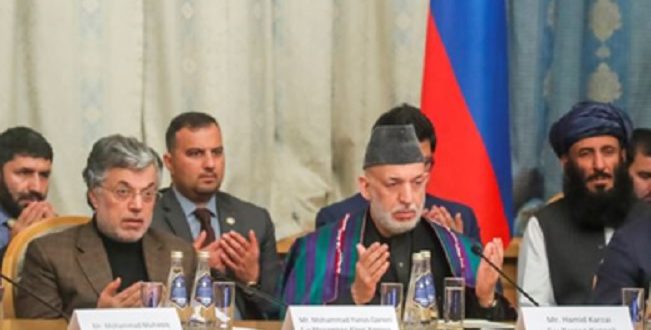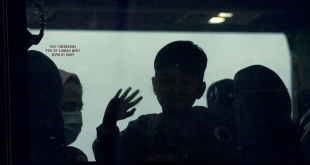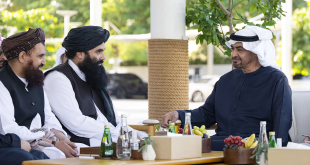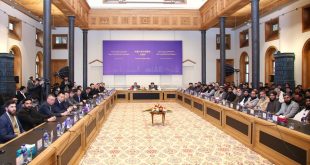The second round of intra-Afghan dialogues, hosted by Russian Federation at Moscow terminated without any fruitful and positive outcomes thus making disappointed the already war stricken countrymen. However, before concluding the dialogues focused on current situation of Afghanistan and plight its people who are hostages to global powers engaged in fighting for making secure their strategic economic interests through “puppets”, the two sides agreed on issuing joint statement. Through joint statement, they highlighted the points came under debates but there is nothing regarding ceasefire agreement, in according to expectation for observing the Eid-ul Fitre with peace and harmony. The statement says that important issues which are knotted with Afghan people’s destiny were discussed and ways to achieve peace and stability were sought. “Both sides discussed the continuation of intra-Afghan talks, ceasefire, the release of prisoners, protection of civilians, foreign troop withdrawal, end of the “foreigners’ interference”, the perseverance of national sovereignty, and women rights,” the statement reads.
The statement says both sides have made some progress on a number of issues but no agreement was made “because reaching agreements needed more discussions”.
“There were some new issues which we discussed. Some of the issues were finalized and some were not. It was decided that those issues which were not finalized should be discussed in the next meeting,” said Suhail Shaheen, a spokesman for Taliban’s Qatar office. But one of the participant of Moscow meeting said the two sides on Wednesday worked on a 12-article statement, but disagreements on ceasefire caused them to only issue a short statement. But unfortunately some participant’s comments on two days meeting found very disappointing.
Atta Mohammad Noor, of Jamiat-e-Islami, said that although they talked with the Taliban for nine hours to reach an agreement on a ceasefire, the discussions were “fruitless”. Noor said the Taliban did not have “convincing reasons” for not accepting a ceasefire. “The Taliban did not have convincing reasons. But you know that the start of peace is a ceasefire.” But former President Hamid Karzai who lead the delegation from Kabul has time and again made successful attempts of saving the process of plunging into crises. He is hopeful about ceasefire, saying “Ceasefire is a crucial issue. We demanded that they also wanted it, but it will be reached in its time.” One thing is encouraging that the two sides agreed for going ahead with the process initiated at Moscow in previous February. Reports indicate that the next round of intra-Afghan meeting will be held in Doha, but the timing is not specified. Although Moscow meeting has not been productive as it witnessed no agreement, the question is that to which extent the politicians and the Taliban had the authority to make a decision about the Afghan peace? It belongs to our political will, to our seriousness, to our political commitments, not to one side, but for both sides. At this stage, the intra-Afghan dialogue process entered into a crucial stage as both the sides are unable to get rid of their “external master’s,” therefore, maximum responsibility rests with the leaders in Kabul to demonstrate unity amongst their ranks. By demonstrating unity in their ranks, the leaders in Kabul could make encouraging their counterparts stationing at Doha Qatar. Similarly, these Afghan leaders in Kabul, the unity government in particular must utilize the diplomatic forums for establishing firm stance on peace, end to violence and ensuring sovereignty and solidarity of the country.
 Afghanistan Times
Afghanistan Times




